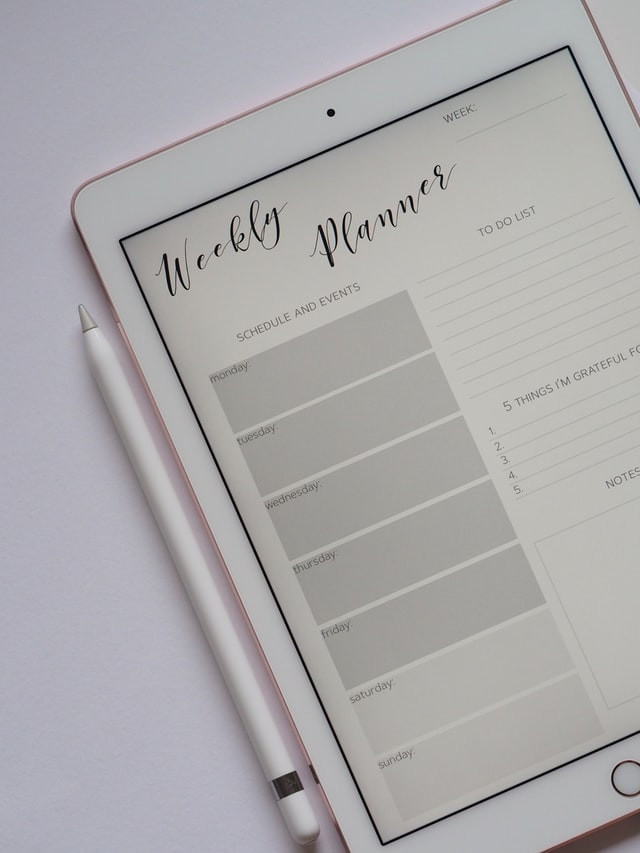Establishing Good Virtual Workplace Habits

With the world becoming increasingly interconnected, virtual workplaces are part of the future for most people's careers. According to Global Workplace Analytics, remote workers in the U.S. increased by 173% between 2005 and 2018. But have those employees brought their good work habits with them to their home office?
The COVID-19 pandemic also influenced more companies to embrace the virtual office setup. A survey conducted by Gartner, Inc found 88% of organizations worldwide made it mandatory or encouraged their workers to be remote during the pandemic. Most companies have decided to remain remote or a hybrid version of it permanently.
Stay on top of this trend toward virtual workplaces by establishing the right habits for a healthy remote lifestyle. Here are eight ways to help you excel for a productive career.
1. Have a dedicated work space

Having a room or desk space specifically dedicated to working can improve productivity. Your brain will associate this space with work and enter into a productive state when you sit there. It's best to choose a private location free from distractions, like TV or that second donut you don't need.
In that same sense, keeping the couch and bedroom a work-free zone can help you relax better during breaks. When you set clear boundaries, you'll feel more comfortable and focused.
2. Minimize potential distractions
Other distractions to avoid are digital ones -- text messages, personal calls, social media alerts and news headlines. According to the 2021 Gartner Hybrid Work Employee Survey, remote workers are 2.54 times more likely to be distracted digitally than on-site workers.
Minimize these distractions with a few simple tips:
- Keep your phone on silent.
- Turn off email notifications.
- Remove social media from your browser shortcuts.
- Alert your team about your focused work periods.
3. Stay in a work mindset
Working from home means you can roll out of bed and wear your pajamas all day. However, getting dressed for work in the morning can help you stay sharp and get into a professional mindset. Not to mention that getting ready will make switching back into your pj's at the end of the day that much more rewarding. While you don't have to wear a suit and tie, it's still good to look your best in case of an unexpected video call.
4. Utilize online communication tools
In a virtual workspace, it's important to share information between co-workers in real-time. Instant messaging platforms like Skype, Slack, Microsoft Teams and Google Hangouts are effective communication tools. They allow co-workers to interact without disrupting anyone's workflow.
You'll have to get used to using these online tools as a way to engage with others. Just make sure to disconnect from them when you are off the clock.
5. Have a fixed work schedule

Although open communication is important, you still need to have healthy boundaries to avoid overworking. Dedicate a schedule for when you'll be working each day and communicate that clearly to your team. You can also indicate periods of focused work and when you're available for quick meetings. This process can prevent people from asking you to work at odd hours outside your availability. You've earned that personal time, you take that personal time.
6. Allocate time for checking emails
According to a McKinsey analysis, workers spend an average of 28% of their workday reading and answering emails. Since it also takes time to switch back to a task after an interruption, your "productive" work hours become even less so.
Reduce how long you spend in your inbox by allocating blocks of time to check emails. If it's an emergency, there are other ways for people to contact you. So if you only check your emails in the morning and again at 3 pm, resist the urge to take a peek when you're in the middle of another project. Keep a running list of emails you need to send, so you can send them all at once.
7. Take time for breaks
Scheduling regular breaks can re-energize your mind before you start feeling drained or burned out. A survey by Airtasker found 37% of remote workers indicated regular breaks were their most effective tool for productivity.
Even short breaks can be beneficial. For example, standing and stretching for a couple of minutes will help you feel more alert by increasing oxygen to your brain. Taking 20-second breaks to gaze 20 feet away from your computer can also relieve eye strain.
8. Stay on top of time management
Remote work means you have to be on top of your time management skills. Stay focused on what you need to accomplish with habits such as creating to-do lists and planning for the next workday. You can also utilize free time management software such as Clockify or My Hours to organize your projects and report your work.
Creating a good virtual workplace
By adopting the eight habits listed above, you can easily create a good virtual work environment to increase your productivity and work satisfaction. Having the right boundaries and methods to maintain a healthy lifestyle is crucial. Remember, you are working from home, not living at work.
© Copyright IBTimes 2024. All rights reserved.





















